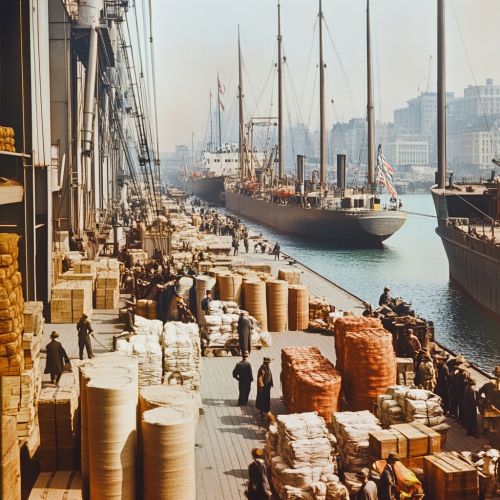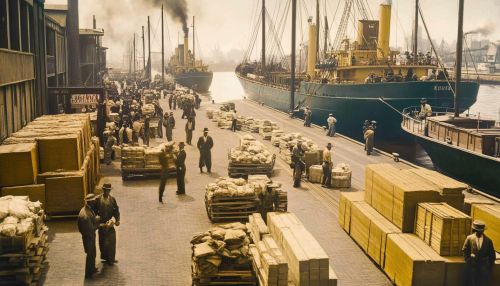Smoot-Hawley Tariff Act
Introduction
The **Smoot-Hawley Tariff Act** of 1930, officially known as the United States Tariff Act of 1930, was a significant piece of legislation that imposed high tariffs on a wide range of imported goods. The Act was named after its principal sponsors, Senator Reed Smoot and Representative Willis C. Hawley. It was enacted during the early years of the Great Depression and is often cited as a contributing factor to the economic downturn. The Act aimed to protect American industries and farmers from foreign competition by raising import duties to historically high levels.
Background
Economic Context
The Smoot-Hawley Tariff Act was conceived in a period of economic turmoil. The Great Depression had begun in 1929, leading to widespread unemployment and a severe contraction in economic activity. Protectionist sentiment was strong, as many believed that shielding domestic industries from foreign competition would help revive the economy.
Legislative Process
The legislative journey of the Smoot-Hawley Tariff Act was contentious. The bill was introduced in the House of Representatives by Willis C. Hawley in 1929 and passed in May of the same year. It then moved to the Senate, where it faced significant opposition and underwent numerous amendments. The final version of the bill was passed by the Senate in March 1930 and signed into law by President Herbert Hoover on June 17, 1930.
Provisions of the Act
The Smoot-Hawley Tariff Act raised tariffs on over 20,000 imported goods. The average tariff rate increased from 38% to 60%, making it one of the highest tariffs in U.S. history. The Act covered a wide range of products, including agricultural goods, textiles, and manufactured items.
Agricultural Products
The Act significantly increased tariffs on agricultural products such as wheat, corn, and dairy. This was intended to protect American farmers, who were already struggling due to falling prices and overproduction.
Manufactured Goods
Tariffs on manufactured goods, including automobiles, machinery, and chemicals, were also raised. This aimed to protect American industries from foreign competition and preserve jobs in the manufacturing sector.
Impact on Trade
The immediate impact of the Smoot-Hawley Tariff Act was a sharp decline in international trade. Many countries retaliated by imposing their own tariffs on American goods, leading to a trade war. This exacerbated the global economic downturn and contributed to the severity of the Great Depression.


Economic and Political Repercussions
Domestic Impact
The Smoot-Hawley Tariff Act had several unintended consequences. While it aimed to protect American jobs and industries, it led to higher prices for consumers and reduced the purchasing power of American families. Many economists believe that the Act worsened the Great Depression by stifling international trade and reducing economic activity.
International Response
The international response to the Smoot-Hawley Tariff Act was swift and severe. Countries such as Canada, France, and the United Kingdom imposed retaliatory tariffs on American goods, leading to a significant decline in U.S. exports. This trade war further strained international relations and contributed to the global economic crisis.
Long-term Effects
In the long term, the Smoot-Hawley Tariff Act had a profound impact on U.S. trade policy. It led to a shift away from protectionism and towards trade liberalization. The Act is often cited as a cautionary tale of the dangers of protectionist policies, and it influenced the creation of international trade organizations such as the World Trade Organization (WTO).
Repeal and Legacy
The Smoot-Hawley Tariff Act was effectively repealed by the Reciprocal Trade Agreements Act of 1934, which granted the President the authority to negotiate tariff reductions with other countries. This marked the beginning of a new era of trade liberalization and international cooperation.
Historical Assessment
Historians and economists generally view the Smoot-Hawley Tariff Act as a misguided policy that exacerbated the Great Depression. It is often used as an example of the negative consequences of protectionism and the importance of maintaining open international trade.
